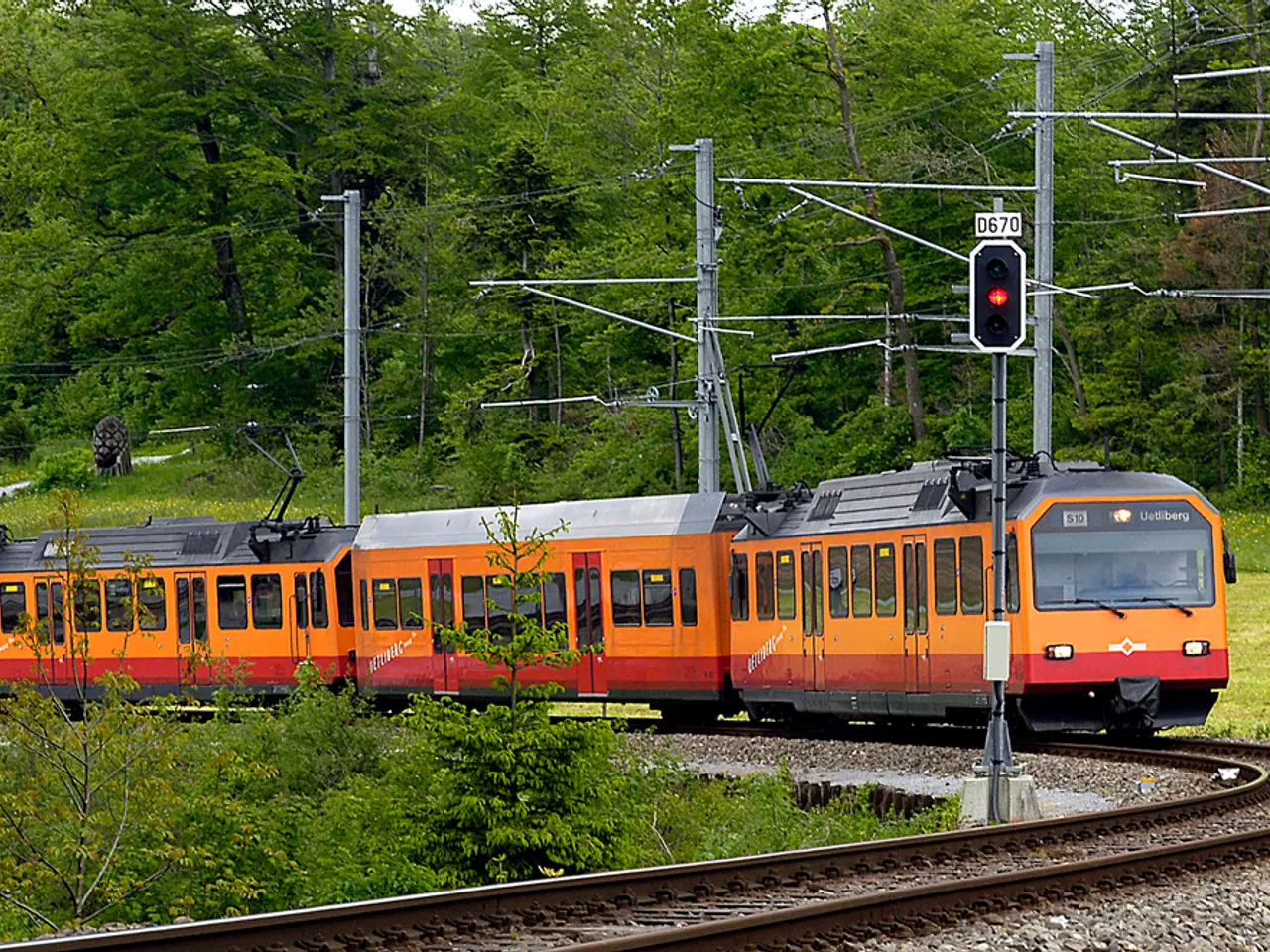First Battery Trains Triumphematically Tested in NRW
In a significant development for the Hessian State Railway, battery-operated trains are poised to revolutionize the Siegen-Limburg route, marking a quantum leap towards a greener and quieter future. Ernst-Ulrich Klein, Site Manager at HLB Siegen, heralds this switch as a major milestone.
These new battery trains, which have already successfully completed three days of testing in regular passenger service, have the potential to eventually replace all 38 diesel trains in Siegen in the not-too-distant future. The Westerwald-Sieg Railway, Regional Train 90, which spans 113 kilometers, with only about a quarter of it electrified, will be the first to benefit from this transition. Regular service between Siegen and Limburg is scheduled to begin in December.
One of the most notable features of these battery trains is their quietness. Unlike their diesel-powered predecessors, these trains operate in near silence, offering a significantly improved passenger experience. This quietness extends beyond the train itself, as electric traction motors produce less mechanical and engine noise than diesel engines.
After the successful pilot project in Siegen, the new battery trains will be tested on other HLB routes, paving the way for a broader transition towards cleaner, quieter transport. This aligns with broader trends in German regional transit, as seen with the rollout of Siemens Mireo battery and hydrogen trains on other routes, which are supported by federal funding for clean transport.
The battery-electric train draws power from underfloor batteries during the journey on non-electrified routes. However, it can also draw energy from the overhead line on electrified sections and simultaneously charge its batteries, ensuring a seamless and efficient journey. Energy is also generated from braking processes through regeneration, further enhancing the train's efficiency.
The federal government is supporting this project with €3.54 million, while the Hessian State Railway has purchased three Mireo Plus B trains from Siemens at a cost of around €10 million each. With a range of up to 120 kilometers, these trains offer a practical and sustainable solution for regional transport.
If you're wondering about the environmental impact of this transition, battery-operated trains like the Siemens Mireo Plus B, which are entering service in various German regional networks starting late 2024, are electrically powered and do not emit local combustion pollutants or greenhouse gases during operation. This significantly reduces carbon emissions compared to diesel trains that rely on fossil fuel combustion.
Moreover, noise pollution is also generally lower with battery-electric trains. The absence of idling diesel engines at stations or in operation further cuts noise pollution, making these trains a welcome addition to the Hessian State Railway.
In summary, the introduction of battery-operated trains on the Siegen-Limburg route would be highly effective in reducing both noise pollution and carbon emissions compared to diesel trains. The exact magnitude depends on operational factors and the electricity's carbon intensity but is universally better than diesel alternatives.
For detailed emission or noise level comparison data specific to the Siegen-Limburg route, further research may be required, as the current search results did not provide such data. However, the benefits of this transition towards cleaner, quieter transport are clear, and we look forward to the positive changes this will bring to regional transport in Germany.
The transition to battery-operated trains, such as the Siemens Mireo Plus B, on the Siegen-Limburg route aligns with the broader trend in Germany's regional transit, which is supported by federal funding for clean transport. These trains are electrically powered and do not emit local combustion pollutants or greenhouse gases during operation, significantly reducing carbon emissions compared to diesel trains. Moreover, noise pollution is also generally lower with battery-electric trains, making them a welcome addition to the Hessian State Railway. This development in news and science is expected to revolutionize the industry, with the potential for these trains to eventually replace all diesel trains in Siegen, leveraging advancements in technology.




